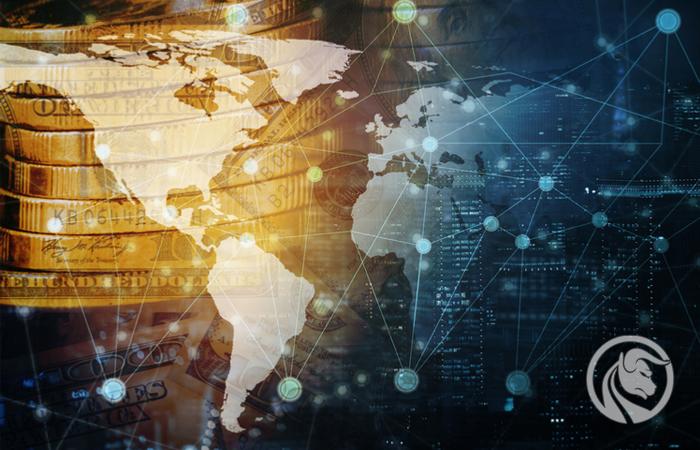Every place in the world is a different phase of the economic cycle
The pandemic and the global lockdown caused all the economies of the world to stop at one point, in one place. The lifting of the lockdowns, in turn, caused the economies to move from one place practically at the same time. It's like suddenly stopping a race involving cars with different parameters and capabilities, and then restarting the race. The longer it lasts, the greater the visible differences between its participants, because everyone drives a vehicle with different capabilities.
In this article, we will try to sort out who is driving what, who is lagging behind and who is in the leadand what this may mean for financial markets and individual asset classes. We will start from the far east to finish the analysis in the west of our globe.
China - deflationary slowdown
We'll start with the Chinese economy, which is starting to struggle with deflation CPI at the same time weaker forecasts for economic growth, indicating a possible not so much a disinflationary slowdown as a deflationary slowdown with the threat of a deflationary spiral. As a result, in China, with deflation, we have a potential cash phase of the cycle, where cash may become the natural choice in anticipation of a progressive decline in prices. However, the authorities must counteract the spiral, and the faster and more effectively they do it, the greater the chances of a rebound in the economy and a "rally on everything".
Stimulation of the economy by, for example, direct support for consumption, the real estate market and interest rate cuts may cause that both bonds and stocks can go up at the same time. However, while bonds usually do well with interest rate cuts, stocks can move only when demand is actually stimulated and they stop waiting for better prices and start shopping.
Eurozone – disinflationary revival
The euro area and its largest economy, i.e. the economy of Germany, is currently in stagflation. This means a recession or lack of economic growth at the same time persisting high inflation. Nevertheless, the economic forecasts available at the moment show that 2024 is to be a year of moderate recovery after the 2023 recession. This means that with inflation falling and economic activity rebounding, there is a chance for a stock phase of the business cycle coupled with the end of the bond phase.
According to OECD forecasts, inflation for the 17 countries of the zone is to fall to around 3,5% at the end of 2023. Meanwhile, GDP growth is expected to increase to 1,47 percent. at the end of 2023
Emerging markets - disinflation recovery on a larger scale
While the recovery in the euro zone may be insignificant, the emerging markets show much more optimistic economic picture. Here, the bond phase of the cycle is best seen, which was formed under interest rate cuts along with the stimulation of the stock market, where the 60/40 strategy has been doing great in recent months.
Now, in turn, because of to catch a hole in the rate of GDP growth there is a chance to move from the bond phase to the equity phase (even despite the already observed increases). This can be clearly seen when interest rates are cut, which may result in a shift of capital from safety to risk against the backdrop of an increasingly better economy.
USA - disinflationary slowdown
US economy though Stock indices are close to record highs, is presented as the one that will weaken in 2024. A further decline in inflation along with a decline in GDP growth may lead to a reduction in interest rates in 2024, and this is a potential scenario for the bond phase of the business cycle. It is worth noting that unlike emerging markets, US bonds remain cheap and their prices have not increased as in EM countries. Here, therefore, this phase of the cycle may yet come, which may be indicated by current economic forecasts.
In conclusion, China is struggling with deflation, Europe may enter a phase of calm recovery, emerging markets (except for China for the time being) have a chance to lead GDP growth, and the US may slow down in 2024, creating a bond phase.






















![Forex Club – Tax 9 – Settle tax on a foreign broker [Download the Application] Forex Club - Tax 9](https://forexclub.pl/wp-content/uploads/2024/02/Forex-Club-Podatek-9-184x120.jpg?v=1709046278)
![Trading View platform – solutions tailored to the needs of traders [Review] trading view review](https://forexclub.pl/wp-content/uploads/2024/03/trading-view-recenzja-184x120.jpg?v=1709558918)
![How to connect your FP Markets account to the Trading View platform [Guide] fp markets trading view](https://forexclub.pl/wp-content/uploads/2024/02/fp-markets-trading-view-184x120.jpg?v=1708677291)
![CRB index – one of the popular commodity market benchmarks [Guide] crb index](https://forexclub.pl/wp-content/uploads/2024/05/indeks-crb-184x120.jpg?v=1715055656)
![How to invest in ChatGPT and AI? Stocks and ETFs [Guide] how to invest in chatgpt and artificial intelligence](https://forexclub.pl/wp-content/uploads/2023/02/jak-inwestowac-w-chatgpt-i-sztuczna-inteligencje-184x120.jpg?v=1676364263)







![Izabela Górecka – “Success on the market depends not only on knowledge, but also on emotional stability” [Interview] Izabela Górecka - interview](https://forexclub.pl/wp-content/uploads/2024/04/Izabela-Gorecka-wywiad-184x120.jpg?v=1713870578)
![WeWork – the anatomy of the collapse of a company valued at $47 billion [WeWork, part II] wework bankruptcy story](https://forexclub.pl/wp-content/uploads/2024/04/wework-bankructwo-historia-184x120.jpg?v=1711729561)
![Adam Neumann – the man who screwed up Softbank [WeWork, part AND] adam neumann wework](https://forexclub.pl/wp-content/uploads/2024/04/adam-neumann-wework-184x120.jpg?v=1711728724)
![The most common mistakes of a beginner trader - Mr Yogi [VIDEO] Scalping - The most common mistakes of a beginner trader - VIDEO](https://forexclub.pl/wp-content/uploads/2024/03/Scalping-Najczestsze-bledy-poczatkujacego-tradera-VIDEO-184x120.jpg?v=1711601376)
![Learning patience: No position is also a position - Mr Yogi [VIDEO] Scalping - Learning patience - No position is also a position - VIDEO](https://forexclub.pl/wp-content/uploads/2024/03/Scalping-Nauka-cierpliwosci-Brak-pozycji-to-tez-pozycja-VIDEO-184x120.jpg?v=1710999249)
![When to exit a position and how to minimize losses - Mr Yogi [VIDEO] Scalping - When to exit a position and how to minimize losses - VIDEO](https://forexclub.pl/wp-content/uploads/2024/03/Scalping-Kiedy-wyjsc-z-pozycji-i-jak-minimalizowac-straty-VIDEO-184x120.jpg?v=1710336731)

















